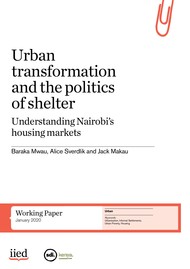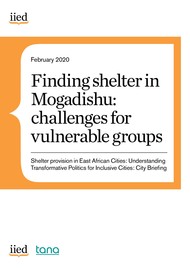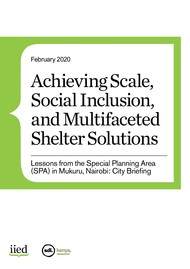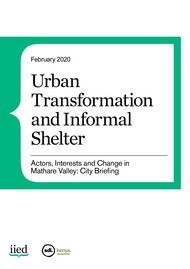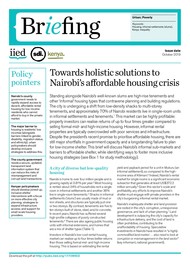More inclusive cities in East Africa: working with politics and informality
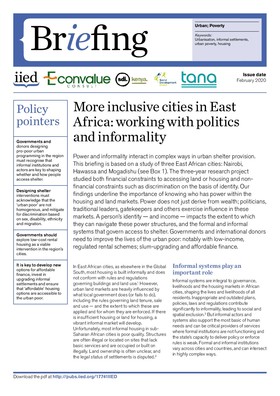
Power and informality interact in complex ways in urban shelter provision. This briefing is based on a study of three East African cities: Nairobi, Hawassa and Mogadishu (see Box 1). The three-year research project studied both financial constraints to accessing land or housing and nonfinancial constraints such as discrimination on the basis of identity. Our findings underline the importance of knowing who has power within the housing and land markets. Power does not just derive from wealth; politicians, traditional leaders, gatekeepers and others exercise influence in these markets. A person’s identity — and income — impacts the extent to which they can navigate these power structures, and the formal and informal systems that govern access to shelter. Governments and international donors need to improve the lives of the urban poor: notably with low-income, regulated rental schemes; slum-upgrading and affordable finance.
Cite this publication
Available at https://www.iied.org/17741iied

